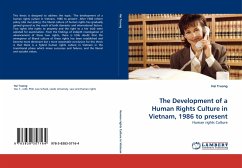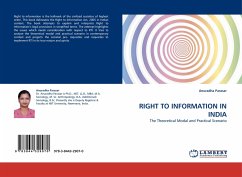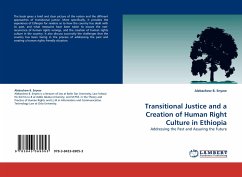
Public Interest Litigation and Human Rights NGOs
Public Interest Litigation as practiced by South African NGOs: Any Lessons for Ethiopia?
Versandkostenfrei!
Versandfertig in 6-10 Tagen
32,99 €
inkl. MwSt.

PAYBACK Punkte
16 °P sammeln!
In many legal systems the requirement of standing is key in order for an interested party to be allowed to make their case in a court of law. However, in matters that affect a large group of people (the public), for instance, cases that seek to cause the enforcement of human rights provisions enshrined in national and international human rights instruments, the bigger consideration of access to justice seem to override the argument for a strict application of the requirement of standing. As a result, many legal systems deviated from the traditional approach and relaxed this requirement in orde...
In many legal systems the requirement of standing is key in order for an interested party to be allowed to make their case in a court of law. However, in matters that affect a large group of people (the public), for instance, cases that seek to cause the enforcement of human rights provisions enshrined in national and international human rights instruments, the bigger consideration of access to justice seem to override the argument for a strict application of the requirement of standing. As a result, many legal systems deviated from the traditional approach and relaxed this requirement in order to allow interested third parties to take up cases of public interest and engage in litigation in defense of the public interest. Human Rights NGOs seem to be leading this endeavor across the world. Although there are variations in the laxity of this standing requirement for human rights groups in different jurisdictions, one could notice a growing interest in the venture with a degree of success in many areas. It could be said that public interest litigation has become an important way of generating social change through the use of law.












